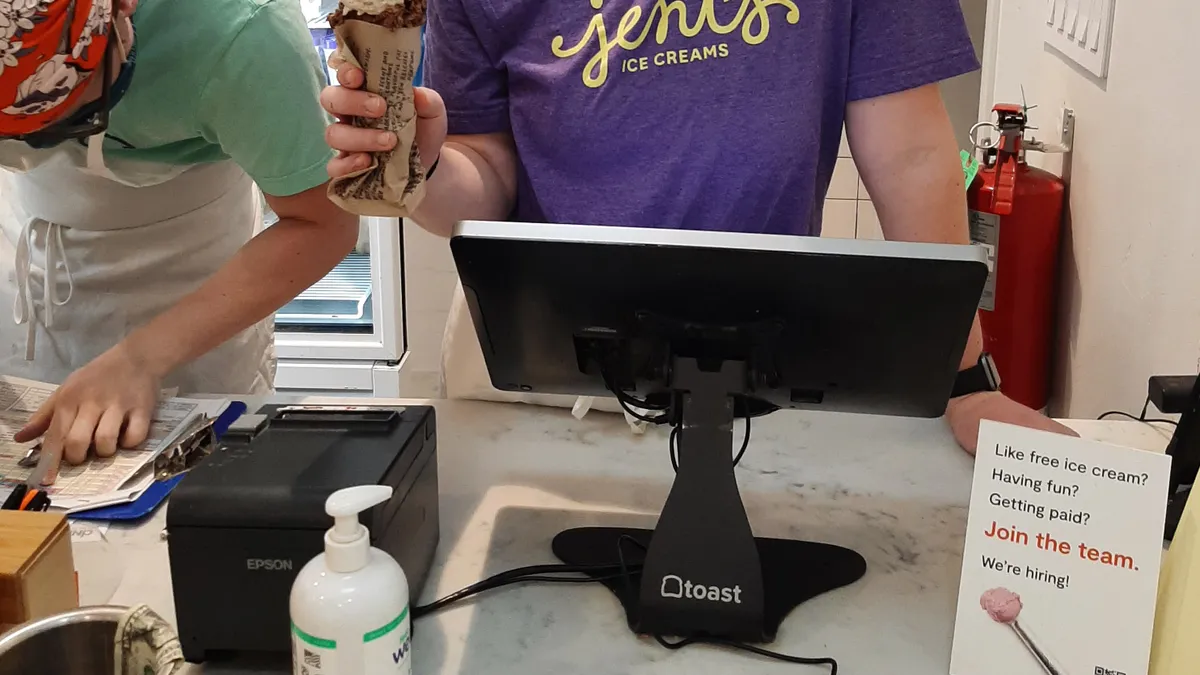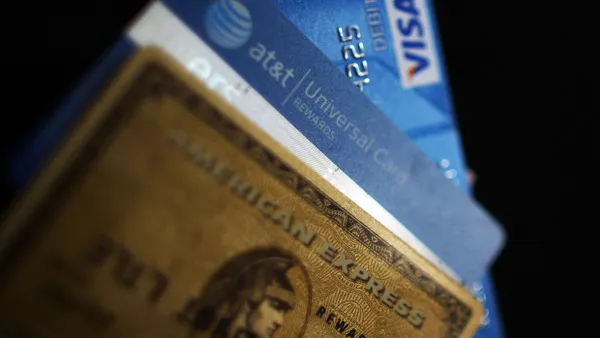Dive Brief:
- Restaurant point-of-sale company Toast is likely to implement price increases on its software services this year, according to analysts who covers the company.
- “They’ve been signaling this for two quarters,” said William Blair Equity Research Analyst and Partner Stephen Sheldon in an interview. Toast will likely broach pricing when a restaurant operator’s contract is up for renewal, so conversations could be gradual, but Sheldon expects the company will implement a mid-single digit increase for prices on its software services that restaurant operators already use.
- The Boston-based company will probably give customers the option between paying more for existing services or keeping their current prices and then paying for additional services from Toast, he said. “I think you’ll see the impact of this likely pick up progressively through 2024 and into 2025.” Toast spokespeople didn’t immediately respond to a request for comment.
Dive Insight:
Toast has the ability to raise prices, “especially given the context that they haven’t done any broad-based price increases in over a decade,” Sheldon said, referencing feedback his firm received from a survey of Toast restaurant clients who are decision-makers about their business operations.
Some level of price increase on Toast’s software, or within its fintech segment, is likely this year, said David Koning, senior research analyst at firm Robert W. Baird. “Most acquirers adjust pricing on a reasonably consistent basis,” he said in an email. Both analysts have an “outperform” rating on Toast.
Last year, Toast added a 99-cent customer-paid fee to orders of $10 or more placed through the company’s online ordering channels, and rivals such as Block-owned Square and SpotOn were quick to needle Toast over it. A few weeks later, Toast said it would scrap the fee; then-CEO Chris Comparato called adding the fee “the wrong decision.” He said Toast would be more thoughtful in its approach to price increases going forward and he underscored executives’ confidence in their ability to leverage pricing despite the fee fumble.
“The way they implemented that fee was an issue, meaning that they didn’t give the restaurant owners and operators a choice, whether to absorb it themselves or pass it on to consumers,” Sheldon said of that situation. “If Toast had maybe given the choice, then maybe there wouldn’t have been as much pushback.”
In the restaurant point-of-sale market, Toast competes with Square, Fiserv’s Clover, Shift4 and Lightspeed as well as legacy providers such as NCR’s Aloha and Oracle’s Micros. Toast is also pursuing bigger restaurant clients, and in that arena, it will face rivals such as PAR Tech and Olo, Sheldon said.
The comprehensive nature of Toast’s platform, offering front- and back-of-house services, and the company’s ability to get restaurant owners to adopt more of those services gives it a boost on the pricing side, Sheldon contended. “The more ingrained you become in workflows to incorporate both, I would argue the more pricing power you have,” because it’s “very tough to rip that out,” he said.
Sheldon also believes it affords the company more protection on the payments side, because even if a competitor offers more attractive economics, restaurant owners would have to swap out software that supports their workflow.
Following the fee issue, Toast promoted Aman Narang to CEO last September, and he started in the top post Jan. 1. Narang, one of the company’s co-founders, had been co-president and chief operating officer, so Sheldon said he’s not expecting much of a strategic change. The company is likely to continue focusing on rounding out the platform and solving restaurant pain points; increasing monetization within its customer base; and pursuing larger clients and international expansion, he said.
“The leadership transition was a little quicker, and sooner, than I would have expected,” Sheldon said. “But it's not overly surprising.” He declined to comment on whether Comparato’s exit was related to the fee issue.











